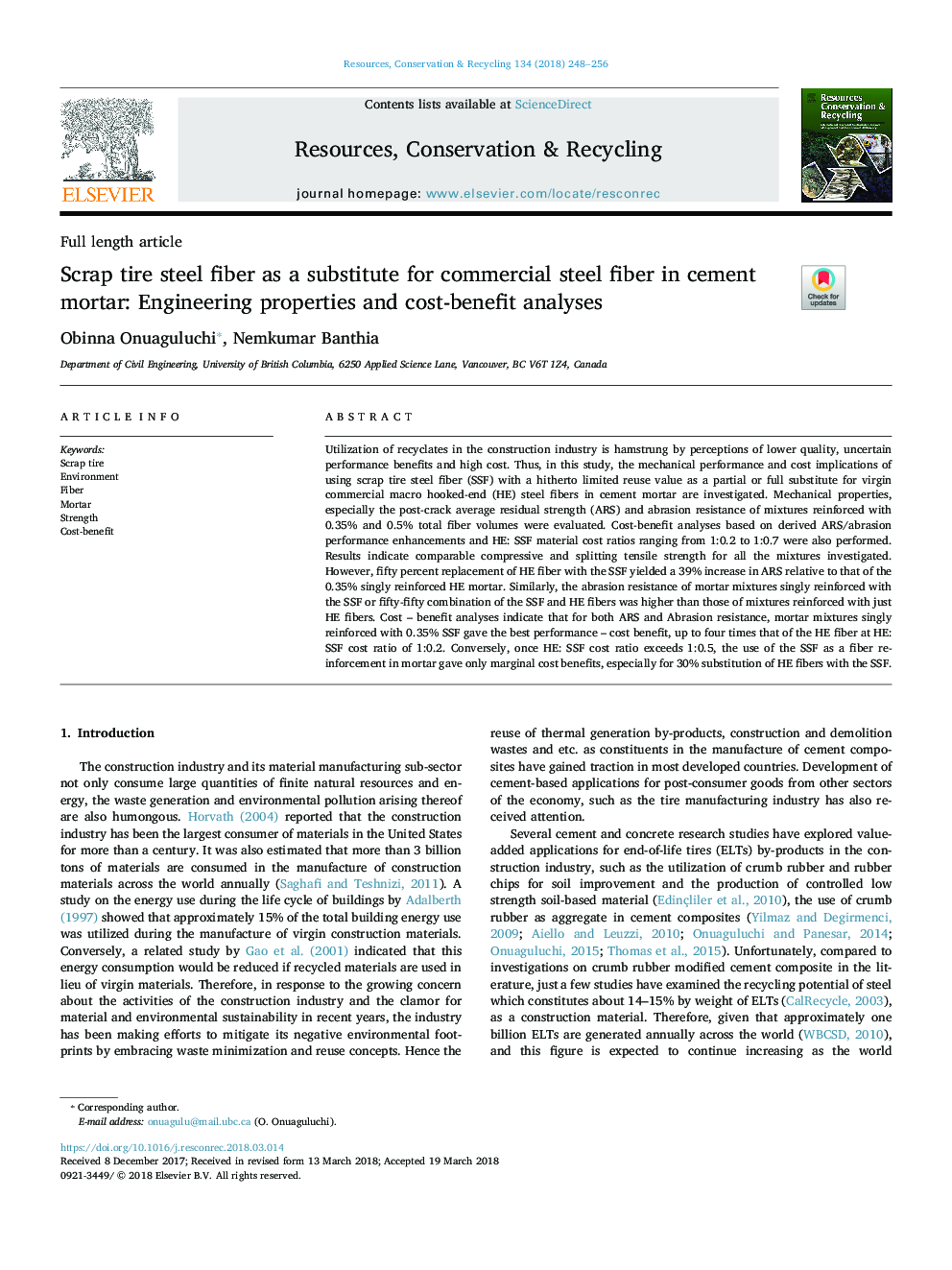| Article ID | Journal | Published Year | Pages | File Type |
|---|---|---|---|---|
| 7494216 | Resources, Conservation and Recycling | 2018 | 9 Pages |
Abstract
Utilization of recyclates in the construction industry is hamstrung by perceptions of lower quality, uncertain performance benefits and high cost. Thus, in this study, the mechanical performance and cost implications of using scrap tire steel fiber (SSF) with a hitherto limited reuse value as a partial or full substitute for virgin commercial macro hooked-end (HE) steel fibers in cement mortar are investigated. Mechanical properties, especially the post-crack average residual strength (ARS) and abrasion resistance of mixtures reinforced with 0.35% and 0.5% total fiber volumes were evaluated. Cost-benefit analyses based on derived ARS/abrasion performance enhancements and HE: SSF material cost ratios ranging from 1:0.2 to 1:0.7 were also performed. Results indicate comparable compressive and splitting tensile strength for all the mixtures investigated. However, fifty percent replacement of HE fiber with the SSF yielded a 39% increase in ARS relative to that of the 0.35% singly reinforced HE mortar. Similarly, the abrasion resistance of mortar mixtures singly reinforced with the SSF or fifty-fifty combination of the SSF and HE fibers was higher than those of mixtures reinforced with just HE fibers. Cost - benefit analyses indicate that for both ARS and Abrasion resistance, mortar mixtures singly reinforced with 0.35% SSF gave the best performance - cost benefit, up to four times that of the HE fiber at HE: SSF cost ratio of 1:0.2. Conversely, once HE: SSF cost ratio exceeds 1:0.5, the use of the SSF as a fiber reinforcement in mortar gave only marginal cost benefits, especially for 30% substitution of HE fibers with the SSF.
Related Topics
Physical Sciences and Engineering
Energy
Renewable Energy, Sustainability and the Environment
Authors
Obinna Onuaguluchi, Nemkumar Banthia,
